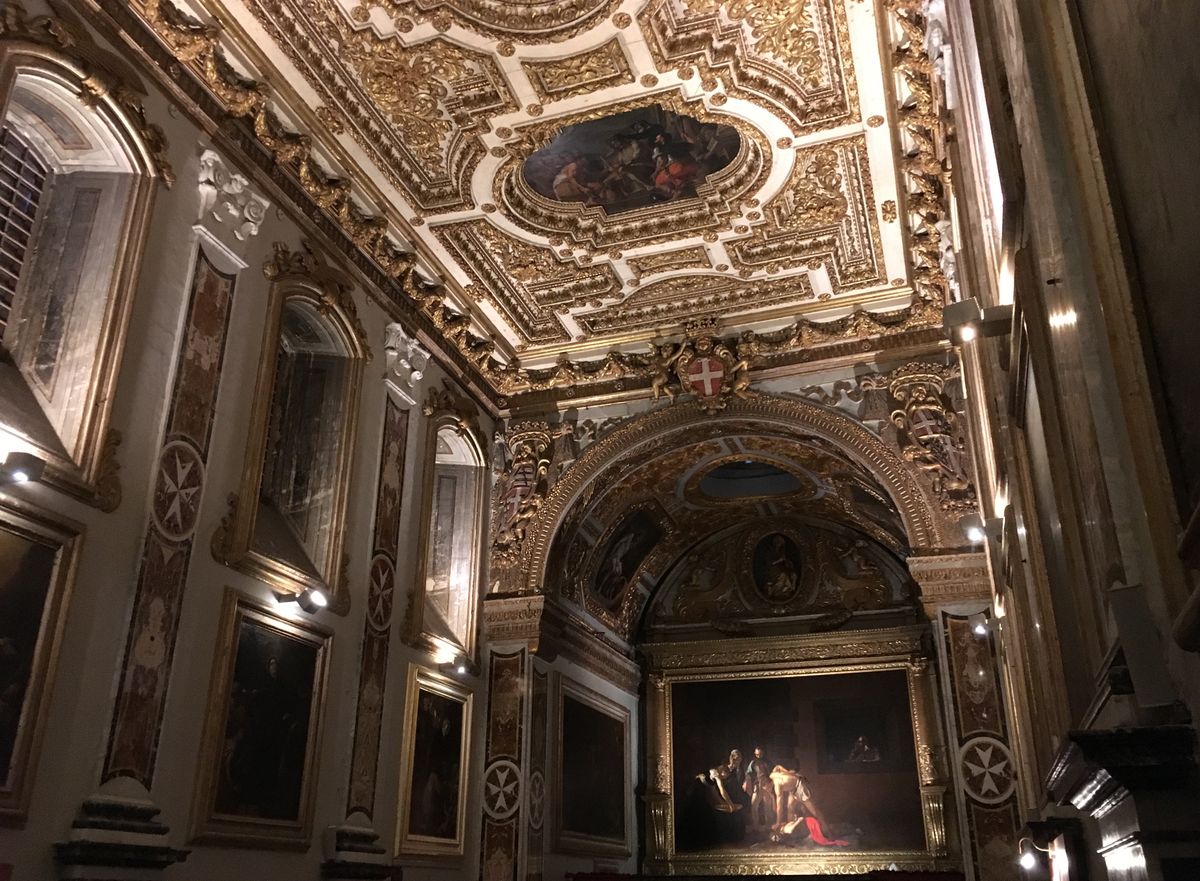See Caravaggio's paintings

A friend recently came back from Italy, but before he traveled there, I told him where to go to see Caravaggio's paintings. At the time he sent me this response:

I mentioned in my initial article about Caravaggio, how I developed an infatuation with his paintings, and I've been trying to figure out what the core, fundamental reason is for that. It's easy to say "they're moving, they're beautiful" etc, but when it comes to art, there's something deeper that affects all of us. After all, art is older than written language, so it makes sense that it speaks to us in ways words never could.
Putting aside the obvious skill it takes in painting the likes of the Calling of St Matthew, or Judith Beheading Holofernes, I've been wondering for a while what inspiration, or sense of will Caravaggio took upon to dedicate himself to creating these masterpieces. 'Divine inspiration' is something often used to describe the feeling that one has been moved to create by a literal divinity. If you've ever felt that sense of elated inspiration in doing something, I suspect this is that feeling.

I don't want to get too personal, but part of the reason why this has been on my mind for a while is because I'm not a religious person. Long story short: I used to be very religious. I'd be involved in church activities, prayed every day almost, even seriously considered becoming a monk after high school. But as it goes with ideas, I came across one I couldn't refute, and so decided to become an atheist. And no, I'm not the insufferable type, I don't go out of my way to remind everyone. I'll still go to church with family, I still love admiring religious art. Part of me has even considered going back to church as a weekly thing.
I'm not going to get into the philosophy behind it all, but I bring this all up because I feel like I'm at one of those junctions in life where I'm making an assessment of various things in my life, potential pathways and whatnot. And I can't stop thinking about what inspired the likes of Caravaggio to create the art he's well known for, because it's not something one could have easily done based solely on financial gain, or to 'make a name for himself', because those reasons are not genuine, and you can tell he was genuine in his art.
I came across a post on X/Twitter once, the author said something along the lines of "entering a Gothic Cathedral should make atheists tremble", and I found that funny, but also relevant. I think even the most insufferable, nihilistic atheist could find a quiet sense of awe in the sort of architecture that defines churches from past eras. That raises the question again: what inspired people 500 years ago, to begin working on something they knew they wouldn't see completed in their life time?
That brings me to another point: modern atheism has become so nihilistic, so lacking in any values or morals. I realised earlier on this was a group of people I didn't want to be involved with. The only figure that has made a proper argument, and has been able to supplant it with a proper moral, ethical framework one can live their life by is Ayn Rand. Incidentally, it was her work that won me over. Funnily enough, a lot of mainstream atheists despise her.
If a work of art can cause someone to question their entire metaphysical worldview, I think it's worth going out of ones way to see that art. Caravaggio has definitely done that for me. Also, recently reading about Ayaan Hirsi Ali deciding to convert to Christianity (going from Islam to atheism herself) inspired me to write this article (literally in this past hour).
What next? I don't know. Short of some divine intervention, I doubt I could ever believe in actual religious scripture. I do like the metaphorical stories imbued in Christianity, and I suspect I'll venture into understanding their meanings more and more.
If you want to see more of his paintings, I created a thread on X on the day of his birthday in September.
Lastly, I just came across this, and I think it speaks for itself:
